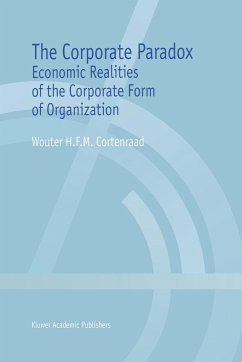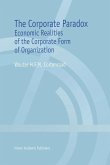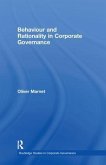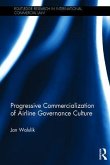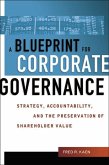The `corporation' is by far the most successful legal concept of organization among large business firms. Yet there are numerous examples of firms operated in corporate form that were troubled either by internal problems arising from divergences of interests between the firm's various constituents (notably, managers and investors), or by conflicts with other members of society (including both victims of accidents or environmental pollution caused by the firm and unpaid creditors in the event of business failure). It is this paradox between the corporation's prima facie success and its apparent ambiguity in other respects that is examined in this book.
Using modern economic theory concerning the functioning of markets and organizations, The Corporate Paradox examines how the concept of the corporation relates to the economic entity it organizes and in effect, how it may affect the use that firms make of society's valuable but scarce resources. To this end, both the economic rationales underlying the corporate form of organization and its effects on organizational and individual behavior are reviewed, with special emphasis on the separation between `ownership' and `control' and the principle of limited liability of shareholders, two features which are typical of the corporate concept. Finally, this book surveys, from a predominantly economic perspective, legal remedies that United States and Dutch law have developed in response to certain inefficiencies to which these features may give rise.
Using modern economic theory concerning the functioning of markets and organizations, The Corporate Paradox examines how the concept of the corporation relates to the economic entity it organizes and in effect, how it may affect the use that firms make of society's valuable but scarce resources. To this end, both the economic rationales underlying the corporate form of organization and its effects on organizational and individual behavior are reviewed, with special emphasis on the separation between `ownership' and `control' and the principle of limited liability of shareholders, two features which are typical of the corporate concept. Finally, this book surveys, from a predominantly economic perspective, legal remedies that United States and Dutch law have developed in response to certain inefficiencies to which these features may give rise.

